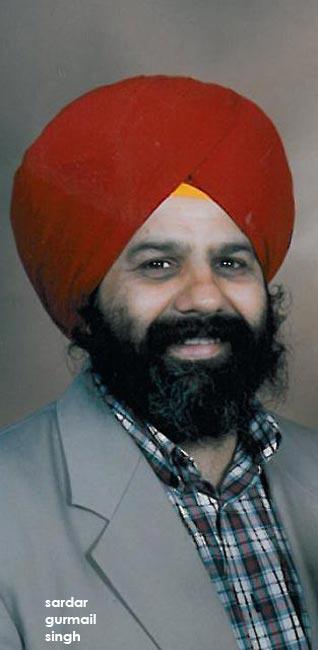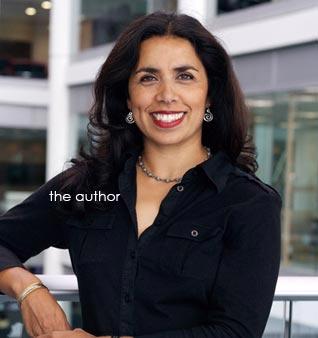People
Not Just Another Killing: What A Grocer's Murder Meant To Me
by NINA KAUR NANNAR
In the aftermath of the tragedy, Prince Charles wrote to Gurmail Singh's widow to express his sympathy, saying: ‘This country can ill-afford to lose such special people.'
The Prince of Wales recognized the extraordinary qualities of a man admired by his fellow-citizens of Cowcliffe, Huddersfield, U.K. [The Daily Mail]
You can sometimes be given a couple of stories in one day in this business.
That's the reality of TV news and of bulletins that need to be filled with the stories that are happening now. You get to engage with the subject, you have to tell the story right, but then you have to move on.
When the news editor messaged me on Thursday lunchtime last week, it was to say a guilty verdict had been returned on the two youths who bludgeoned Gurmail Singh to death in his Huddersfield convenience store, and that they wanted me to do the piece.
I didn't need any more details. I knew all about the death of Gurmail, 63, a shop-keeper murdered for a few pounds and sundry, who died earlier this year "protecting what he had worked so very hard for", because he did not "meekly hand over his property, his hard-earned money", as the jury in Bradford Crown Court was told.
I knew, not because I am a 24/7 newshound who follows the ins and outs of every story - I can't claim that - and not just because it is still so rare to see a man in a turban on TV or in the mainstream press, even though I know I speak for many Sikh immigrant families who still stop what they are doing when they see "one of their own" appear on screen.
I knew because, to me, Gurmail Singh's story was unforgettable. When I looked at his face, I saw my own Sikh Punjabi family, my dad and his brothers, a "model immigrant's story", a story that is not untypical of Sikh-Britons in the U.K. today.
My Dad, Piara Singh Nannar, came to England from the Punjab in the 1950s, and worked in the burgeoning steel industry. Mum stayed behind, until there was an assured home and a living to come to. That's also what happened in Gurmail Singh's family - he didn't join his father in England until the 1960s. My mum came here then too, and we, my three siblings and I, were born here.
We didn't settle in Southall, London, like many Punjabi immigrants, but in Scunthorpe, a small north-Lincolnshire steel town. That's where Mum and Dad raised us, with my Dad's mantra - work hard, really hard, harder than your classmates, because you will need to if you want the same opportunities. He feared that being in such a minority we might lose out. But we were also encouraged to take part in the community. So everyone knew Dad and the kids in our family.
Piara Singh and, clearly, Gurmail Singh, understood the importance of that. Dad even became a governor at our junior school. That was simply amazing for that time - if a little embarrassing for us when he came to visit our classrooms on official duties.
We spoke English better than we spoke Punjabi, but we still worshipped in a gurdwara. We were still expected to marry into the faith - an arranged marriage to a Sikh doctor would be perfect - but I met a garden designer from New Zealand while roaming through Machu Picchu in Peru. My young daughter delights in telling all who meet her that she is "half Indian and half normal".
I wanted to write but ended up in broadcasting, first radio and then TV. Mum and Dad had their doubts. It was the 1990s and the TV industry here was not exactly representative of multicultural Britain. But whereas their generation, first generation immigrants, had had to work hard to belong, mine was one step further along the line. Thanks to them, I never doubted that I couldn't do what I chose.
Now, I'm involved in initiatives at ITV News to promote our newsrooms as places where talent prospers regardless of race. Is the TV news industry a model of multiculturalism? No, not yet, but it's better than it was when I started out.
My Dad was so proud when I went back to his Punjabi village to do a series of pieces for ITV News to mark the 60th anniversary of India's Independence. There was his daughter broadcasting for a British TV channel talking about the village where our story began. A village just like many others, like Gurmail Singh's, villages from which hundreds of thousands of Sikhs embarked on their journeys to a welcoming UK.
Gurmail Singh seemed by all accounts to have been an extraordinary man. I never met him, but I recognise so much in his face. All male Sikhs should carry the name Singh. It means Lion, and Sikhism is known as the religion of saint-soldiers. My Dad put up a heroic fight against cancer, but, almost exactly a year ago, he lost that battle. It was an unfair fight.
Gurmail Singh's family lost their own father too in an unfair attack by two robbers; last week's guilty verdict was a testament to the bravery of another Punjabi lion.
[Courtesy: The Independent]
October 28, 2010
Conversation about this article
1: N. Singh (Canada), October 28, 2010, 12:17 PM.
Thank you, Nina Kaur ji. These two stories echo my own ... parents arrived in 1960s Britain ... the same upbringing imbibed with the stories of struggle, determination and overcoming hurdles faced by the Sikhs helped shape and forged my character so that I would be able to face the challenges courageously that life would throw my way ...
2: Grace (Melbourne, Australia), November 03, 2010, 1:26 PM.
This is an amazing article, an amazing post ... This story echoes through me in a very heart-wrenching way. I am glad you have acknowledged the plight of the Sikh people and also the progress that has been made! As an anglo, Australian woman expecting her first child with her Sardar, this story gives more hope to the future of my little Sikh soldier! :)




